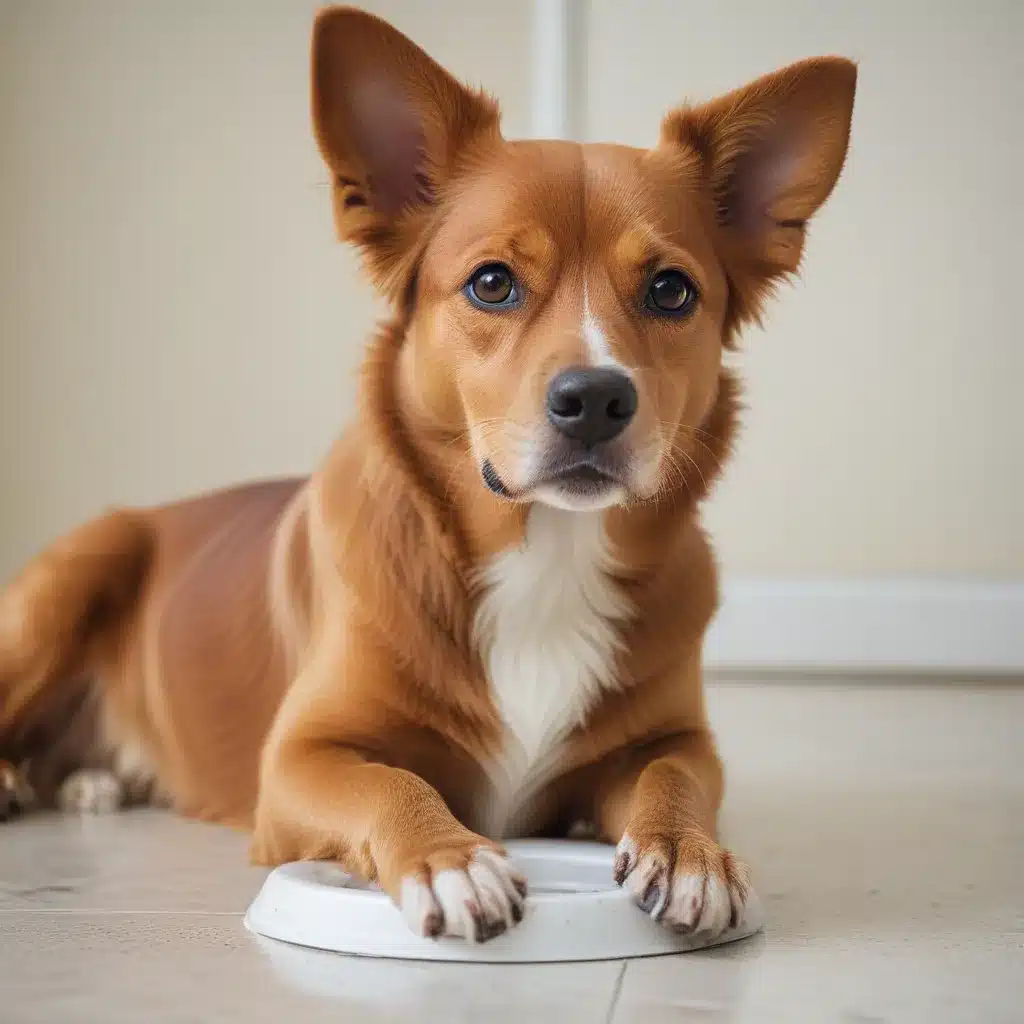
When Diarrhea is No Joke
Oh boy, there’s nothing quite like the panic that sets in when your beloved pup starts having a bout of the runs, am I right? As if dealing with the cleanup wasn’t enough, the worry about what could be causing it can be enough to make any dog parent’s head spin.
Well, take a deep breath, my friend. I’m here to walk you through everything you need to know about canine diarrhea – from the most common causes to when it’s time to high-tail it to the vet. By the end of this article, you’ll be an expert on doggy digestive distress and know exactly how to get your furry friend back on the path to good health.
The Scoop on Diarrhea
Let’s start with the basics. Diarrhea is basically the result of your pup’s gastrointestinal (GI) tract not functioning properly. Normally, water is absorbed through the GI tract to be used by the body. But when things go haywire, that excess water gets flushed out along with the waste, leading to those telltale loose, watery stools.
Now, the good news is that mild cases of diarrhea are usually no big deal. As Dr. Meredith Miller of Cornell University explains, “Many cases of diarrhea in dogs and cats are mild and self-limiting.” If your pup is otherwise happy and healthy, their digestive system will likely get back on track within a day or two.
The tricky part is knowing when diarrhea is something more serious that requires veterinary attention. As Dr. Miller warns, “If a pet stops eating, is lethargic, the diarrhea is black or tarry in quality, there is associated vomiting, or the diarrhea doesn’t resolve in 48-72 hours then veterinary care should be sought.”
Potential Culprits
So, what can cause diarrhea in the first place? Well, the list is quite long, my friends. Some of the most common triggers include:
- Dietary Changes: Switching up your pup’s food or treats too quickly can wreak havoc on their digestive system.
- Overexertion: Yep, even too much playtime or excitement can lead to a bout of the runs.
- Infections: Bacterial, viral, or parasitic infections can all manifest as diarrhea in dogs.
- Allergies/Intolerances: If Fido has a sensitivity to certain ingredients in his food, that can definitely lead to digestive distress.
- Stress: When your dog is feeling anxious or overwhelmed, it can absolutely show up as diarrhea.
And those are just the more benign causes. As I mentioned, diarrhea can also be a symptom of more serious underlying conditions, like hemorrhaging in the gastrointestinal tract, organ failure, or even cancer.
That’s why it’s so important to pay attention to the other signs that might accompany the diarrhea, like vomiting, lethargy, or loss of appetite. These could be indications that something more serious is going on and that it’s time to get your pup checked out by the vet.
Dealing with Doggy Diarrhea
Okay, so your pup has the runs – now what? Well, the first thing you’ll want to do is make sure they stay hydrated. According to the Veterinary Emergency Group, dehydration can set in quickly when a dog has multiple bouts of diarrhea, so you’ll want to keep their water bowl filled and encourage them to drink frequently.
You can also try feeding them a bland, easily digestible diet for a day or two, like boiled chicken and rice. This gives their gut a chance to rest and recover. Just be sure to transition them back to their regular food slowly to avoid triggering another bout of diarrhea.
And of course, if the diarrhea persists for more than a day or two, or if you notice any of those concerning symptoms like vomiting or lethargy, it’s time to get your pup checked out by the vet. They can run tests to determine the underlying cause and get your furry friend the appropriate treatment.
Remember, when it comes to your dog’s health, it’s always better to err on the side of caution. As they say, an ounce of prevention is worth a pound of cure – and that’s especially true when it comes to our four-legged friends. So don’t hesitate to reach out to your vet if you have any concerns.
In the meantime, I hope this article has provided you with a solid understanding of what’s going on when your pup has the runs and when it’s time to seek professional help. And if you’re ever in the market for a new canine companion, be sure to check out I Have Dogs – they’ve got all sorts of amazing pups just waiting to find their furever homes.
Until next time, wishing you and your pup nothing but happy, healthy, and diarrhea-free days ahead!

